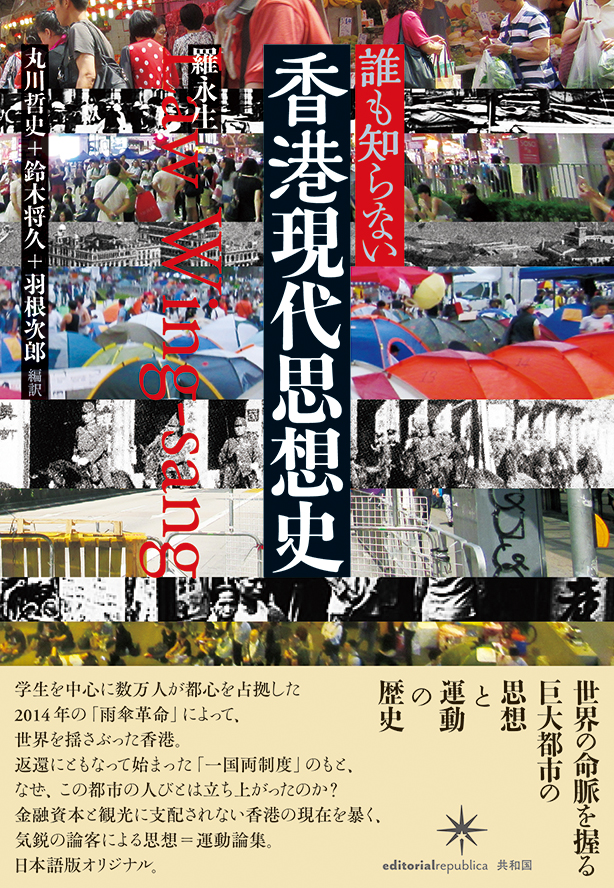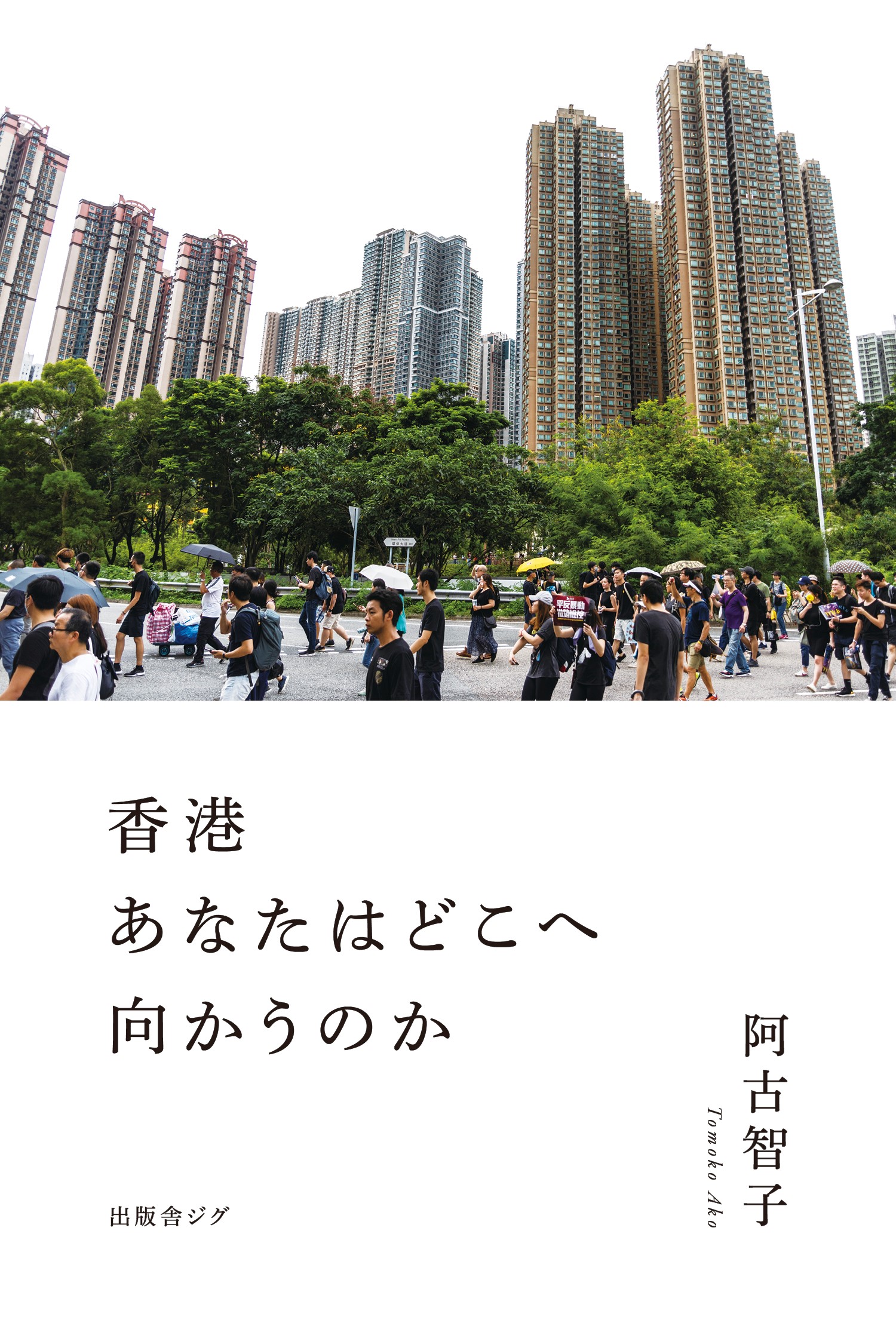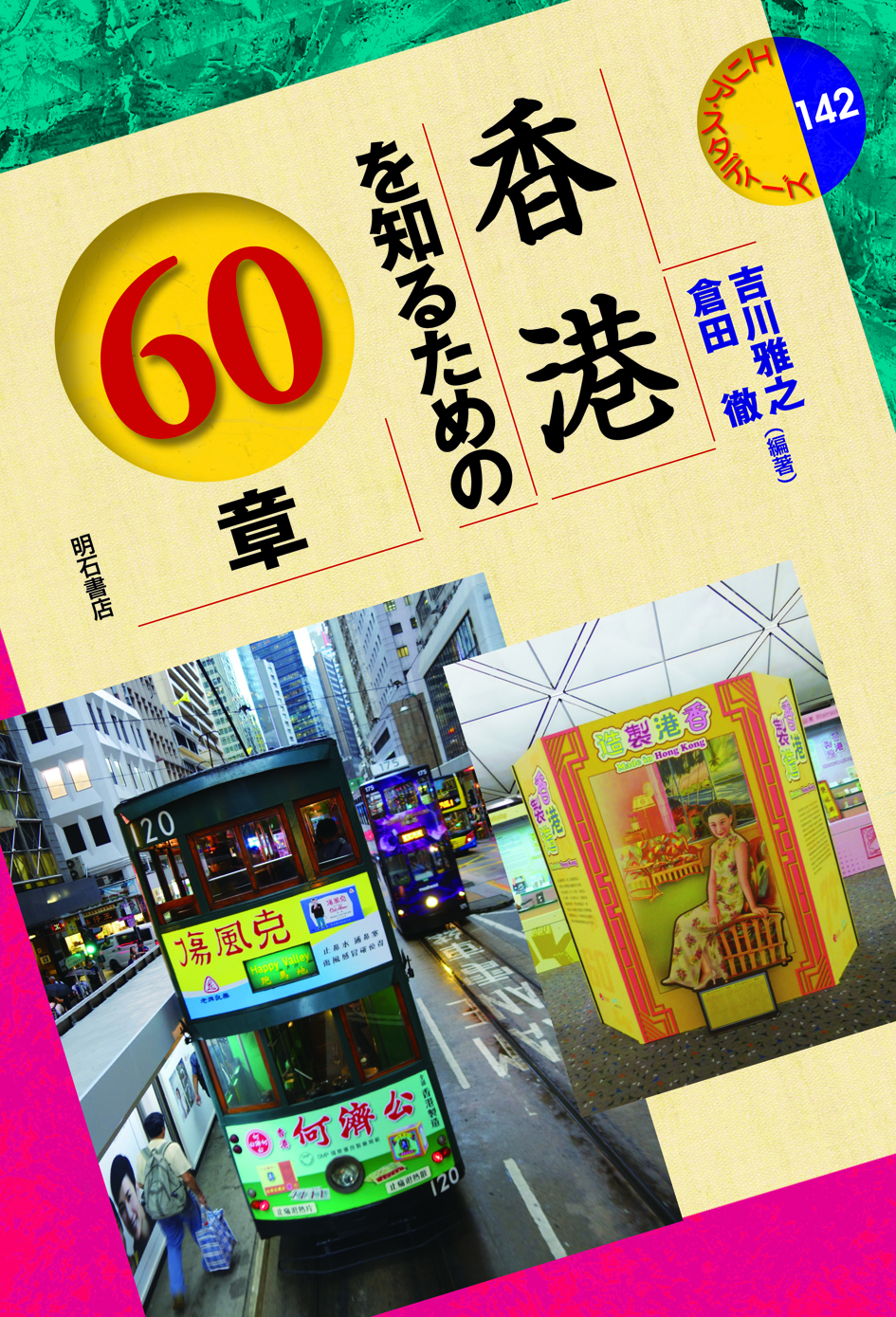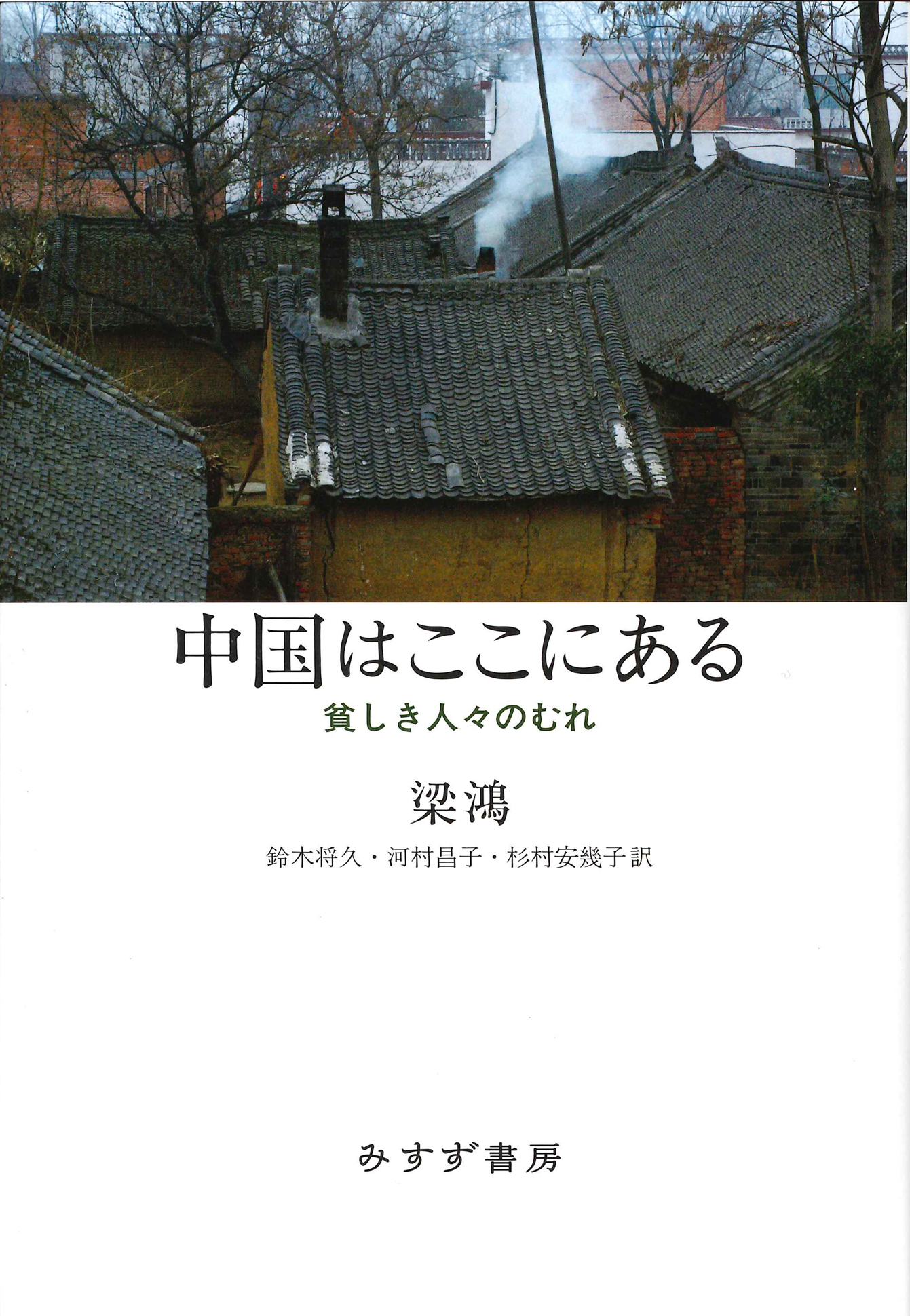
Title
Dare mo shiranai HongKong Gendai Shisoushi (The Little-Known History of Contemporary Thought in Hong Kong)
Size
360 pages, 127x188mm, softcover
Language
Japanese
Released
August, 2015
ISBN
978-4-907986-09-4
Published by
editorial republica
Book Info
See Book Availability at Library
Japanese Page
Everyone has heard of Hong Kong. But it is extremely difficult for people living in Japan to understand Hong Kong in a true sense. Putting it simply, this is because Hong Kong’s history is complicated and utterly different from that of Japan. But to be a little more precise, it is because the complexity of Hong Kong’s history is virtually unimaginable so long as one thinks about it in terms of Japan’s history. Things that are important for thinking about Hong Kong have not only never been experienced in Japan but have never even been considered as concepts.
Hong Kong is well known as the financial centre of Asia and as a commercial city, and in recent years it has also been attracting attention on account of political activities such as the Umbrella Movement. But why did it become a financial city? And why have political movements suddenly been on the rise in recent years? Is it because there is a split between politics and the economy that has become more acute? Or is there an intrinsic relationship between the two? This book is an attempt to retrace the history of Hong Kong at the level of intellectual thought as a means of thinking about such matters.
The author Wing Sang Law has been involved in intellectual and practical activities in Hong Kong from the standpoint of cultural studies. At the time when this book was published, he was teaching at Lingnan University, but since then he has left the university and in his capacity as a private citizen is engaged in hands-on activities founded on intellectual thought.
According to Law, the key to understanding Hong Kong’s history in terms of intellectual thought lies in Great Britain’s colonial rule. British colonial rule, especially in Hong Kong in the second half of the twentieth century, may be described as indirect rule, and he calls it collaborative colonial power in which the British collaborated with upper-class Chinese. The British granted upper-class Chinese certain powers and made economic success a lofty goal representing “modernization.” By pursuing this goal, upper-class Chinese were able to feel that they had become people of the modern age. But this was no more than limited “success” sanctioned within the confines of British colonial rule.
In contrast, what Law seeks is the establishment of subjective agency by people living in Hong Kong. However, this subjective agency doesn’t refer to an exclusive identity, and nor does it seek in any way independence for Hong Kong. What Law demands of people is that they free themselves from their colonial consciousness and assume a sense of responsibility for their own community.
Thinking about Hong Kong’s thought and history with a focus on colonial rule may be described as a perspective original to Law, and it is by no means the only way of explaining Hong Kong’s history. Nonetheless, this book provides a pivot for thinking about Hong Kong that is completely different from Japan’s experience. It should serve as an aid for pondering Hong Kong’s history and present situation in line with Hong Kong’s experiences.
This book is a collection of essays that has been specially compiled by the editors for Japanese readers. It would be wonderful if readers of this book were able to savour the intellectual stimulation that results from coming in contact with some of the diverse ideas to be found in East Asia.
(Written by SUZUKI Masahisa, Professor, Graduate School of Humanities and Sociology / 2018)



 Find a book
Find a book





